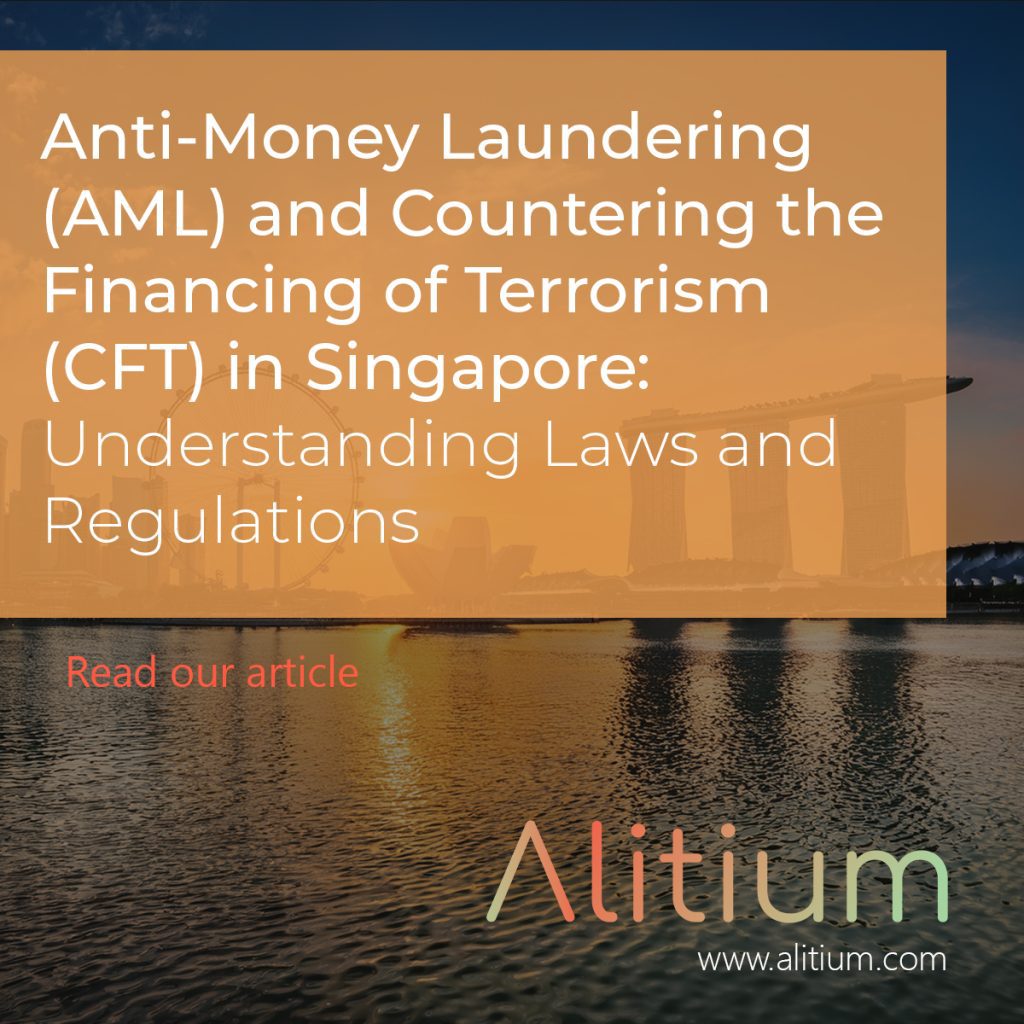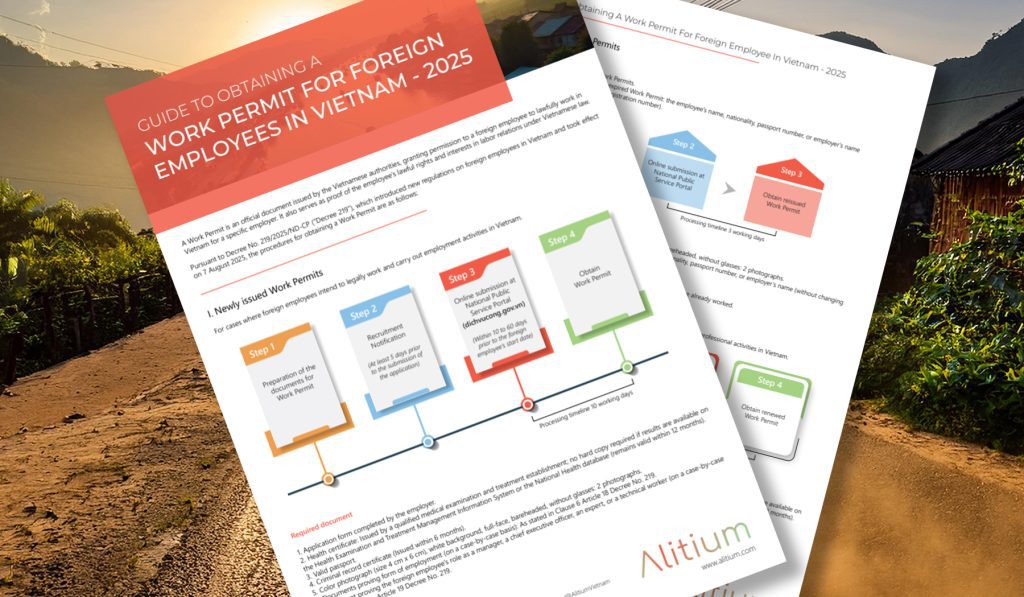Real Estate, Accounting and Law Firms are Impacted by Vietnam’s AML – but are they ready to comply?
The Anti-Money Laundering (AML) Law, effective from 1 March 2023, represents a significant regulatory milestone for Vietnam, aiming to enhance the integrity and transparency of financial transactions. The Ministry of Finance has recently emphasized the importance of strict compliance and has requested accounting and auditing services firms to report on the execution of AML regulations. This article highlights the key compliance points that firms must prioritize to ensure adherence to the AML Law.
Operative Regulations: The Law on Anti-Money Laundering (AML Law 2022)
On 15 November 2022, the National Assembly of Vietnam passed a new AML Law, effective from 1 March 2023. This law supersedes the previous AML Law from 2012 and aims to strengthen Vietnam’s compliance with international AML standards. The AML Law 2022 consists of 66 Articles, divided into four chapters:
- Chapter I: General Regulations (8 Articles)
- Chapter II: AML Methods (38 Articles)
- Chapter III: Authority Management (17 Articles)
- Chapter IV: Effectiveness of the Law (3 Articles)
The AML Law applies to a wide range of entities, including financial institutions, non-financial entities, and those related to these institutions and entities. Ongoing compliance is required from entities known as “Reporting Entities.”
Understanding the AML Framework
The AML Law mandates comprehensive measures to detect, prevent, and report money laundering activities. Firms must familiarize themselves with the law’s requirements, which include customer due diligence (CDD), record-keeping, reporting suspicious transactions, and implementing internal controls.
The AML Law applies to a diverse array of entities, encompassing both financial institutions and non-financial entities, as well as those associated with these institutions. The obligation of ongoing compliance is specifically applied to entities known as “Reporting Entities.” These entities include:
a) Licensed Financial Institutions engaged in one or more of the following activities:
-
- Acceptance of deposits
- Lending
- Financial leasing
- Payment services
- Payment intermediary services
- Issuing negotiable instruments, transferable securities, bank cards, fund/money transfers, or wire transfer orders
- Bank guarantees and financial commitments
- Providing foreign exchange services and money market instruments
- Securities brokerage, investment advice, and provision of security for securities issues
- Investment fund and portfolio management
- Life insurance business
- Money and currency changing
b) Non-Financial Businesses and Professions conducting one or more of the following activities:
-
- Prize-awarding games, including electronic games, telecommunications network-based games, internet-based games, casinos, lottery tickets, and betting
- Real estate business, excluding leasing or subleasing of real property and real estate consulting
- Dealing in precious metals and jewels
- Providing accounting services, notarial services, and legal services rendered by lawyers and legal professional organizations
- Providing business formation, management, and administration services, services of acting as (or arranging for another person to act as) a director or secretary of a company to third parties, and legal arrangement services.

Actions for Compliance Required for Reporting Entities
When it comes to AML action required, it generally indicates the obligations of execution of the Vietnamese authorities and reporting entities. Within this article, we will focus on key compliance requirements for Reporting Entities.
a) Develop and implement internal rules for AML compliance
As Organizational Reporting Entities, you will need to issue internal AML rules and process, these should cover:
- Customers identification and Customer Onboarding scheme
- AML risks assessment and AML risk management
- Review, detect, processing and report transactions
- Information Storage and Confidentiality
- Temporary methods and handling principles of delayed transactions.
- Reporting Scheme and Information Sharing to the SBV and other authorities
- Recruitment and Anti-Money Laundering Training
- Internal Audit and Compliance Monitoring of AML Policies
These internal Rules will be annually reviewed and made proper adjustment to ensure their continued effectiveness.
b) Customer Due Diligence (CDD)
Identification and Verification: This involves in collecting and verifying information such as name, date of birth, nationality, occupation, contact phone number, residence address and information of ID card/passport/ Vietnam entry visa of the customers and the beneficial owners, and understanding the nature of their business relationships. This process must be conducted during customer onboarding and should be regularly updated to ensure accuracy.
Risk Assessment: Reporting Entities must conduct an AML risk assessment, with the results updated annually. For corporate Reporting Entities, the results must be approved according to internal rules. The assessment results must be reported to the SBV and the Management Ministry within 45 days from the completion date for individual reporters and the approval date for organizational reporters. The results must also be accessible and published within the Reporting Entities’ systems. Based on the assessment results, the entities develop a process for AML risk management and client classification.
Ongoing Monitoring: Continuously monitor client transactions and update CDD information to detect any unusual or suspicious activities.
c) Reporting Transactions
Suspicious Activity Reports (SARs): For suspected transactions, regardless of their value or completion status, reports must be submitted within three working days from the date of transaction or one working day from the date of discovery. These reports can be submitted in hard copy or online and will be acknowledged within five working days.
Large Value Transactions: Reporting Entities must report high-value transactions (those exceeding 400 million VND) to the State Bank of Vietnam (SBV). An electronic report needs to be submitted within one working day (by 4 PM of the following working day), or the Reporting Entities can report in a physical copy within two working days from the date the transaction arises.
Law and Accounting Service Firms: These firms must review, collect, and analyze information to report suspected transactions.
d) Record-Keeping
CDD Documentation and result of analysis and assessment: Preserve all documents related to CDD, including identification and verification information, risk assessments and analysis for 5 years from the date of transaction completion, account closure, or reporting date.
Transaction Records: Maintain comprehensive records of all reported transactions for 5 years from the date of transaction.
e) Annual activities
Annual training: Reporting Entities must conduct annual AML training for both leadership and relevant employees.
Internal AML Rules Update: Reporting Entities will annually review their internal regulations regarding AML laws, policies, and risk management procedures. This review will consider the latest AML risk management results within the entity, as well as current business practices. Based on this assessment, the internal regulations may be amended, replaced, or maintained as-is. Any revisions to the internal AML regulations must be submitted to the AML authority affiliated with the State Bank of Vietnam (SBV) within 30 days of their implementation.
AML compliance officer registration: Registering full name, workplace address, phone number, email address of AML compliance officers email address of units to AML authority. Informing AML authority in writing when the above information is changed within 15 days from the date on which the information is changed.
The effective implementation of Vietnam’s AML Law requires firms being Reporting Entities to adopt a proactive and comprehensive approach to compliance. As the Ministry of Finance intensifies its oversight, it is imperative for firms to demonstrate their commitment to combating money laundering and maintaining the highest standards of financial conduct.
By prioritizing customer due diligence, record-keeping, reporting suspicious transactions, internal controls, enhanced due diligence, and leveraging technology, firms can navigate the complexities of AML compliance and play a crucial role in safeguarding the financial sector from illicit activities.
Phuong Vo is Managing Partner at Alitium Vietnam, providing market entry and professional support for foreign investors in Vietnam. Contact Phuong via Alitium.com for further assistance and advice.








